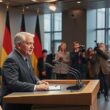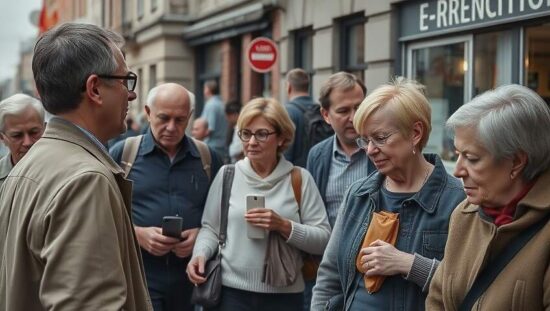The Alternative for Germany (AfD) maintains its position as the leading political force in the nation, securing 26% of voter preference in the latest Forsa poll. While the Christian Democratic Union (CDU) has managed a slight uptick, reaching 25%, it remains narrowly behind the AfD, highlighting a persistent and concerning shift in the German political landscape. The Social Democrats (SPD) linger at 14%, the Green Party at 12%, the Left Party at 11% and the Free Democratic Party (FDP) at a stagnant 3%, reflecting a broader sense of political inertia amongst established parties.
However, the most striking development within this week’s survey is the precipitous decline of the breakaway BSW (Socialists), triggered by Sahra Wagenknecht’s recent announcement to step down from the party leadership. The party’s support has plunged below the 3% threshold, effectively rendering it statistically insignificant and unable to be numerically represented within the Forsa data – a position previously shared by the FDP during periods of electoral struggle. This collapse raises serious questions about the long-term viability of Wagenknecht’s political project and potentially signals a realignment within the left-wing electorate.
Further compounding challenges for the governing coalition, the poll reveals a deepening crisis of confidence in CDU leader Friedrich Merz. A staggering 73% of respondents express dissatisfaction with his performance, marking the lowest approval rating since he assumed leadership. Only a quarter of the population views his work favorably and even within his own CDU base, support continues to erode, indicating a potentially fatal lack of public trust and prompting internal scrutiny of his strategic direction. The persistent strength of the AfD, coupled with Merz’s dwindling popularity, paints a worrying picture for the political stability of Germany and underscores the urgent need for a reassessment of the nation’s political course. The data, collected between November 11th and 17th, 2025, is based on a sample of 2,502 respondents.





